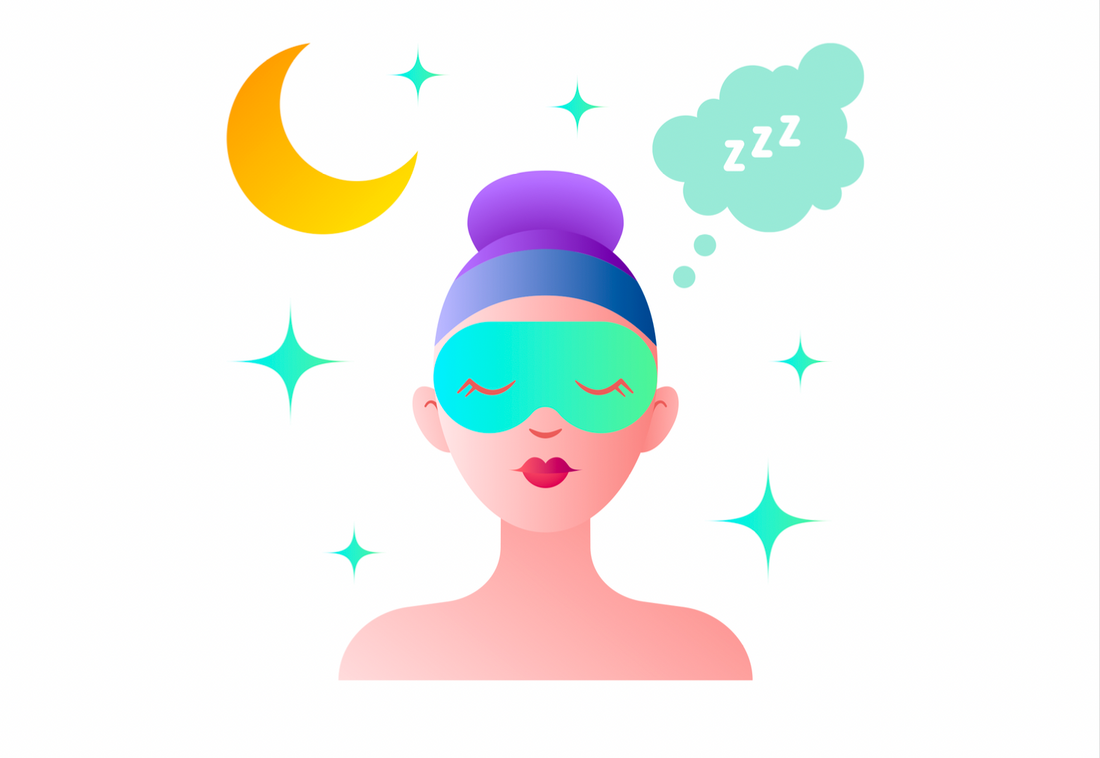
6 Simple Tips for a Deeper Sleep Tonight.
6 Simple Tips for a Deeper Sleep Tonight
Do you find yourself tossing and turning all night long as you desperately try to get some sleep? If so, you’re not alone. Research indicates that as much as 33 per cent of the adult population suffer from acute or chronic insomnia, meaning they have difficulty falling or staying asleep.
Not getting enough sleep can make you feel foggy and tired all day long. According to Johns Hopkins, there can be more severe consequences for consistently missing out on sleep, such as increasing your risk of type 2 diabetes, obesity, depression, heart disease, high blood pressure, and memory problems.
In addition to helping avoid all these potential health risks, getting more sleep can improve your immune system, athletic performance, and social interactions.
Fortunately, you’re not doomed to live with chronic insomnia. You can do many things to reclaim the night and get the recommended 7 – 8 hours of sleep your body needs.
How to Get a Better Night’s Rest
Focus on establishing good sleep hygiene so you can get a better night’s sleep. Try these six ideas tonight.
- Establish a routine
Set a firm bedtime and wake-up time, then stick to those times every day, even on the weekends. Spending two days staying up late and sleeping in can throw your whole rhythm off.
- Move every day
Moving every day can help you fall asleep faster and stay asleep longer. For example, one study from Northwesternfound that sedentary people who started doing aerobic exercise four days a week experienced an improvement in sleep quality from “poor” to “good” in 16 weeks.
- Turn off electronics
A recent survey found that nearly all adults use some form of electronics right before bed, whether it’s their smartphone, tablet, video game, or television. Unfortunately, the blue light from electronics can impact your brain and make it harder to fall asleep. So, power off your electronics 30 – 60 minutes before bed.
- Swap alcohol for herbal tea
If you usually have a drink (or two) before bed, the alcohol could be disrupting your sleep. Many people mistakenly believe alcohol will help them fall asleep because of its sedative properties. However, it will also likely wake you up in the middle of the night. Try replacing your nightcap with a cup of herbal tea to keep the same ritual without the sleep-depriving effects of alcohol.
- Get up if you need to
If you’re lying in bed awake for longer than 20 minutes, it’s smart to get up and move to another room. Sit somewhere comfortable and keep the lighting low. Don’t turn on the TV! Instead, read a book, write in a journal, or listen to music. Then, when you start to become tired, move back to bed.
- Avoid caffeine in the afternoon
Studies have found that people who drink caffeine six hours before bedtime still experience trouble falling asleep. Unfortunately, many people who have insomnia end up in a vicious cycle of drinking caffeine to stay awake during the day, then struggling to fall asleep at night. Break the cycle by saying “no” to caffeine after lunchtime.
A Better Sleep Starts Tonight
These tips can help you fall asleep faster and stay asleep longer. Sometimes, though, following good sleep hygiene still isn’t enough.
For those times, it may be beneficial to use a sleep aid to help you get the rest you need.
Shop our line of calming sleep aids designed to help you fall asleep naturally so you can have the energy you need to get through your day.
References
2011 poll, technology and sleep. Sleep Foundation. (2021, February 26). Retrieved February 16, 2022, from https://www.sleepfoundation.org/professionals/sleep-americar-polls/2011-poll-technology-and-sleep
Cunnington, D., & Junge, M. (2016, November 16). Chronic insomnia: Diagnosis and non-pharmacological management. The BMJ. Retrieved February 16, 2022, from https://www.bmj.com/content/355/bmj.i5819
Drake, C., Roehrs, T., Shambroom, J., & Roth, T. (2013, November 15). Caffeine effects on sleep taken 0, 3, or 6 hours before going to bed. Journal of Clinical Sleep Medicine. Retrieved February 16, 2022, from https://jcsm.aasm.org/doi/10.5664/jcsm.3170
Leech, J. (2022, January 6). 10 top benefits of getting more sleep. Healthline. Retrieved February 16, 2022, from https://www.healthline.com/nutrition/10-reasons-why-good-sleep-is-important
Paul, M. (2010, September 15). Aerobic Exercise Relieves Insomnia. Aerobic Exercise Relieves Insomnia: Northwestern University News. Retrieved February 16, 2022, from https://www.northwestern.edu/newscenter/stories/2010/09/aerobic-exercise-relieves-insomnia.html
Seven ways to get a Healthier night's sleep. Johns Hopkins Medicine. (n.d.). Retrieved February 16, 2022, from https://www.hopkinsmedicine.org/health/wellness-and-prevention/seven-ways-to-get-a-healthier-nights-sleep
Stein, M. D., & Friedmann, P. D. (2005, March). Disturbed sleep and its relationship to alcohol use. Substance abuse. Retrieved February 16, 2022, from https://www.ncbi.nlm.nih.gov/pmc/articles/PMC2775419/



